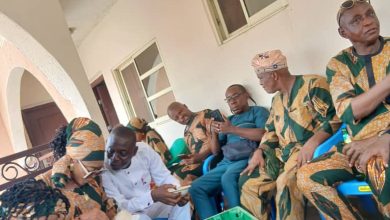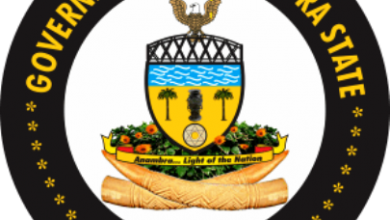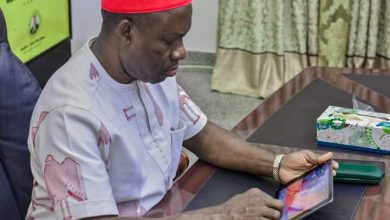
By Ejike Abana
The recent appointment of non-indigenes as permanent secretaries in Anambra State by Governor Chukwuma Charles Soludo, CFR demonstrates his personal belief and commitment to a detribalized approach to governance- a move that is a clear departure from the norm. It “puts breath” to his dedication to meritocracy and inclusivity.
Governor Soludo had announced the appointment of eighteen persons as Permanent Secretaries in Anambra State. Two out of the names are from Osun and Abịa States respectively, while others are indigenes of the state; a significant departure from the norm, where such high-ranking positions are typically reserved for indigenes of the state.
The inclusion of Mr. Joachin Achor from Abia and Mr. Adebayo Ojeyinka from Osun as permanent secretaries is a testament to Governor Soludo’s commitment to a governance model that values competence over origin.
Mr Ojeyinka, has been in the state public service system since 1995, when he completed his National Youth Service Corps scheme (NYSC) in the state. He received the award as the best serving corps member during his service year, and was subsequently retained by the state government. Likewise, Mr. Anchor has been in the service of Anambra State for years and rose to the position of a Director in the Ministry of Finance.
Their appointments were made following a rigorous selection process involving computer-based examinations and one-on-one interviews with the governor, ensuring that the most qualified individuals were chosen for these critical roles.
The role of a permanent secretary is quite significant in the civil service structure. They are the most senior civil servants in a department and have a multifaceted role that includes; policy adviser, department budget and management, showing leadership and team management. In short, Permanent Secretaries play a crucial role in ensuring that the government’s policies are implemented effectively and that the department operates smoothly and efficiently.
This action by the Governor portrays a broader vision for Nigeria; one that rises above ethnic and tribal lines in favor of competence and the collective good. Placing talent and competence above place of origin, portrays Governor Soludo as offering a new template and setting a standard for leadership in Nigeria.
This move has been lauded as a step towards a more unified and efficient administration, as it brings diverse perspectives and experiences to the forefront of state governance. It also sends a strong message that Anambra is a state that values talent and hard work above all else, setting a precedent that could inspire other states to follow suit.
Governor Soludo’s approach aligns with his broader reform agenda aimed at enhancing transparency, accountability, and optimal delivery of services to ndị Anambra.
His detribalized stance is not just about appointments; it’s about fostering a sense of unity and national identity. It is a step towards dismantling the barriers that have long divided Nigeria and building a more cohesive society where every citizen has the opportunity to contribute to the nation’s progress, regardless of their background.
In a country rich with diversity, Governor Soludo’s governance model could serve as a blueprint for other states and leaders, encouraging them to embrace a Nigeria where every individual’s potential can be realized for the benefit of all.
By prioritizing merit and performance, the state is poised to benefit from a civil service that is not only representative but also highly capable and motivated.
As Nigeria continues to grapple with issues of ethnic diversity and representation, Governor Soludo’s appointments could be a beacon of hope, signaling a shift towards a more inclusive and performance-driven public service. This could be the dawn of a new era in Nigerian governance, where ability and integrity become the cornerstones of public service appointments.



